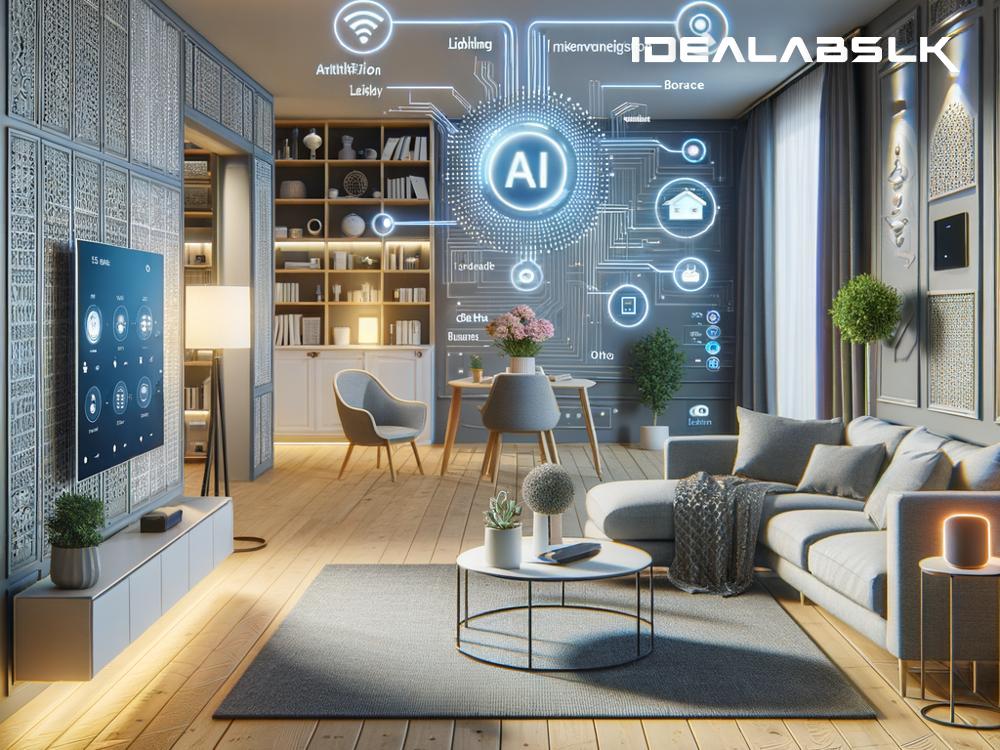How AI is Lighting Up Our Lives: The Magic Behind Smart Adaptive Lighting Systems
In a world where technology is constantly evolving, artificial intelligence (AI) is not just a buzzword anymore — it's a key player in making our everyday gadgets smarter, especially when it comes to lighting up our spaces. Yes, we're talking about those nifty gadgets that adjust the lighting in your room or office automatically, creating the perfect ambiance without you having to lift a finger. But have you ever wondered how AI powers these smart adaptive lighting systems? Let's illuminate the subject in simple English.
What are Adaptive Lighting Systems?
Before diving into the brains of the operation (AI), let's understand what adaptive lighting systems are. Imagine entering your room, and the lights adjust themselves to the perfect brightness and color temperature based on the time of day, whether it's a sunny afternoon or a cloudy morning. That's adaptive lighting in action. It's like having a personal lighting assistant that knows your preferences and the best lighting conditions for any given situation.
The AI Magic Behind the Scenes
At the heart of these systems is artificial intelligence. But how does AI achieve this? It looks complicated on the outside, but it's quite fascinating once you understand the basic principles.
-
Learning Your Preferences: The first piece of the puzzle is learning. AI systems are great learners. They observe your behavior and preferences over time. Did you dim the lights at dinner time yesterday? The AI takes note. Do you prefer brighter lights during your reading hours? The AI remembers that too. It's all about patterns and habits.
-
Sensing the Environment: AI doesn't just rely on history; it also senses what's happening around you in real-time. Using sensors, the system can detect the amount of natural light coming into a room and adjust the artificial light accordingly. If it's a cloudy day, the lights might brighten up a bit more than on a sunny day, ensuring you always have just the right amount of light.
-
Making Smart Decisions: Here's where the intelligence part really kicks in. Based on the collected data and its understanding of your preferences, AI makes decisions on how to adjust the lighting. This involves complex algorithms, which are essentially sets of rules and calculations that AI follows to determine the best lighting settings at any given moment.
-
Adapting to Changes: What makes these systems truly smart is their ability to adapt. If you start working night shifts and suddenly you're active at night and asleep during the day, AI will notice this change in pattern and adapt the lighting accordingly. It's always learning and adjusting, making sure your lighting is just right, no matter the changes in your schedule or the environment.
The Benefits of AI-Powered Adaptive Lighting Systems
Now that we understand the 'how,' let's talk about the 'why.' Why is it beneficial to have AI manage our lighting?
-
Energy Efficiency: By adjusting the lighting based on natural light availability and your needs, adaptive lighting systems can save a significant amount of energy. Less waste, lower utility bills, and a step forward in our collective journey towards sustainability.
-
Health and Wellbeing: Proper lighting can profoundly impact our health and wellbeing. Exposure to bright light in the evening can interfere with our sleep patterns, while too dim lighting can strain our eyes. AI-powered systems ensure that we're getting the right type of light at the right time, promoting better sleep and comfort.
-
Convenience and Comfort: Lastly, the sheer convenience of not having to manually adjust your lights multiple times a day can't be overstated. It's one less thing to worry about in our increasingly busy lives, making our homes and workplaces more comfortable and responsive to our needs.
The Future is Bright
As technology continues to advance, we can only expect these AI-powered systems to get smarter and more capable. The future may hold even more personalized and intuitive lighting solutions, making our spaces not just places to live or work in but environments that actively contribute to our quality of life.
It's fascinating to see how a blend of AI and adaptive lighting can make such a significant difference in our daily experiences. By understanding the environment and learning from our habits, AI is indeed lighting up our lives in ways we might not have imagined possible. The future is bright, and it's smartly lit.

